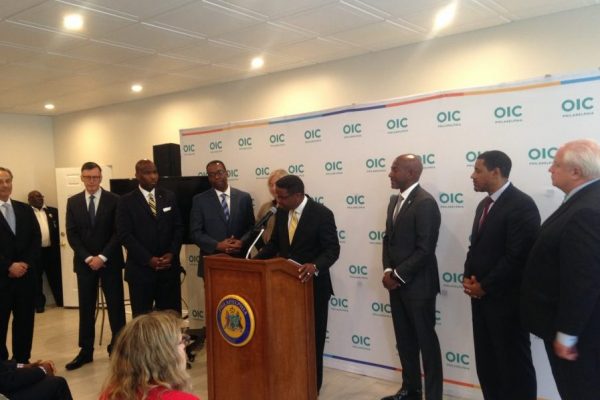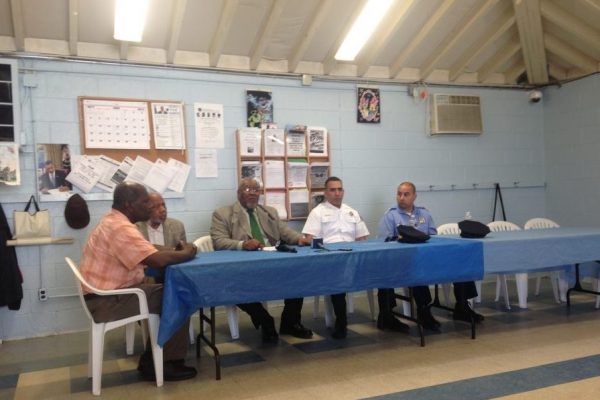City Council Unanimously Amends Fair Practices Ordinance to Outlaw Credit History-Based Discrimination in Hiring
Credit history and debt are no longer legal reasons for employers to pass over job seekers, the City Council unanimously decided today.
“Denying employment based on a credit history is a backdoor vehicle to employment discrimination. And people who most are in need of steady employment often have poor credit histories,” Council President Darrell Clarke said a statement. “Making it harder for them to find employment only contributes to widening income inequality in Philadelphia.”
The council amended the Fair Practices Ordinance to outlaw credit-history based discrimination in hiring. The changes to the local law mean that employers won’t be able to use an applicant’s credit history, debt or bankruptcies when hiring.
Roughly 47 percent of employers use credit history or other financial information to make their hiring decisions, according to the Society for Human Resources Management.
Amy Traub, for Demos.org, reported that one in seven workers with imperfect credit were told that they were not hired because of an issue in their credit history. Traub noted that one in ten unemployed workers remembered being passed over because of their credit score.
Poverty and unemployment are linked to higher credit credit debt and poor credit history according to Traub’s analysis. Allowing employers to use credit history to hire or pass on an employee ultimately prevents people from improving their lives following a rough period, Traub said.
Though Philadelphia’s unemployment rate has been dropping since 2014, as of March 2016, 6.7 percent of Philadelphia’s workforce is unemployed.
Additionally, living in poverty often leads to an imperfect credit history. 31.2 percent of Philadelphia families with children survive at or below the poverty line. Focusing on single-mother households, the proportion of families living at or below the poverty line jumps to 46.5 percent.
The amendment, introduced by Councilman Bill Greenlee on behalf of Council President Darrell Clarke, will go into effect in 30 days on June 25.
There are exceptions to the code: Law enforcement and financial institutions are still able to access the credit histories of potential employees as is the City of Philadelphia when seeking repayment from an individual. But, the amended ordinance says that if an employer is covered by the exceptions they must inform applicants what information they will seek and offer the applicant a chance to explain their credit history.
The amended ordinance explicitly states that cashiers and retail employees are not considered “jobs of significant financial responsibility” for the purposes of the law.
Council President Clarke’s office acknowledged that catching an employee engaged in credit-based discrimination is very difficult.
“Denial of employment or job loss due to credit checks is notoriously difficult to quantify, as is most forms of employment discrimination,” said a representative of Council President Clarke.
Despite the difficulties of catching employers engaging in this form of discrimination, Council President Clarke maintains that this amendment is an important step in protecting Philadelphia’s most vulnerable workers.
“Giving employers access to credit histories when not relevant to the work…is simply not defensible, period,” said Council President Clarke in statement to Spirit News.






